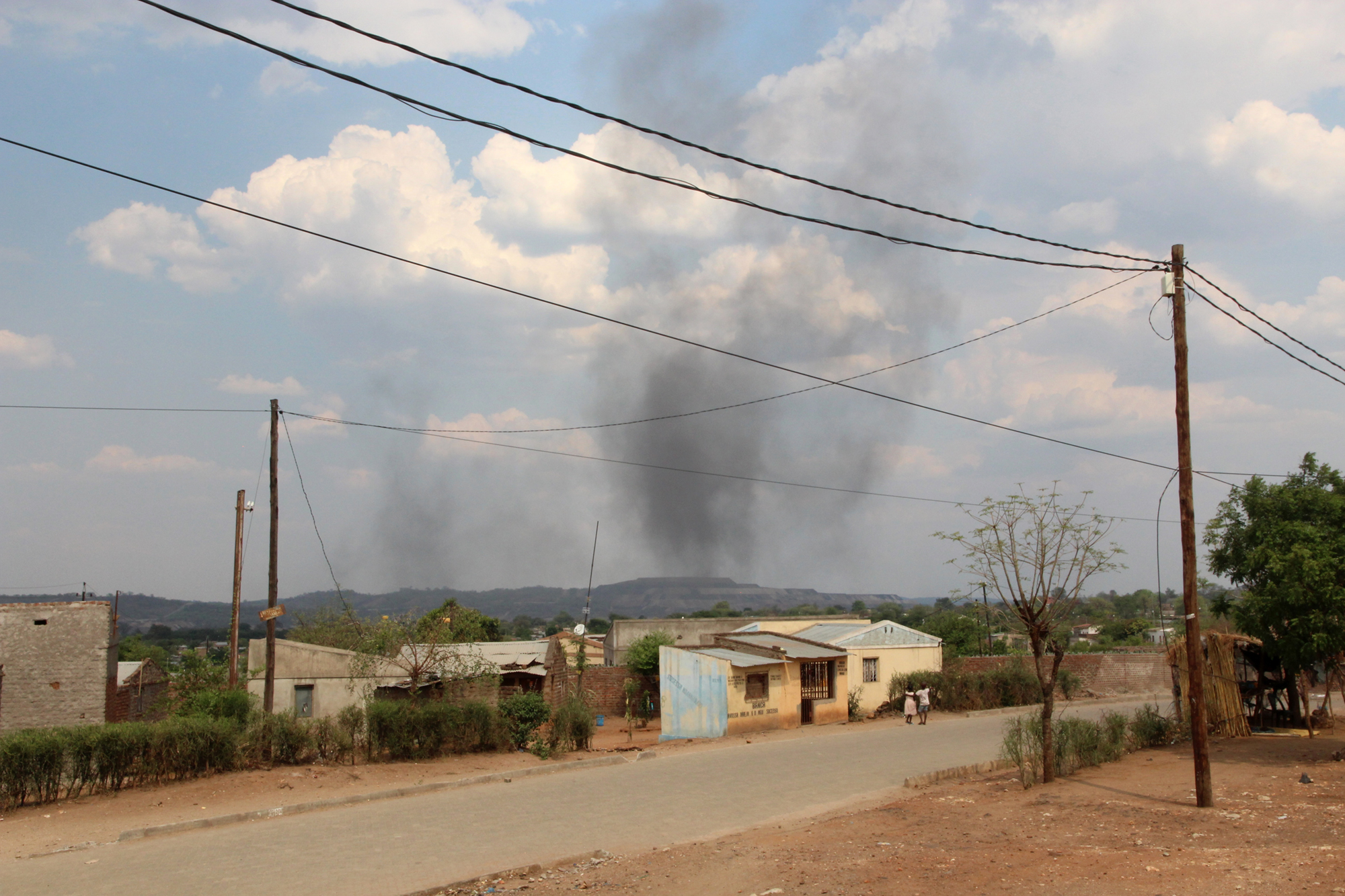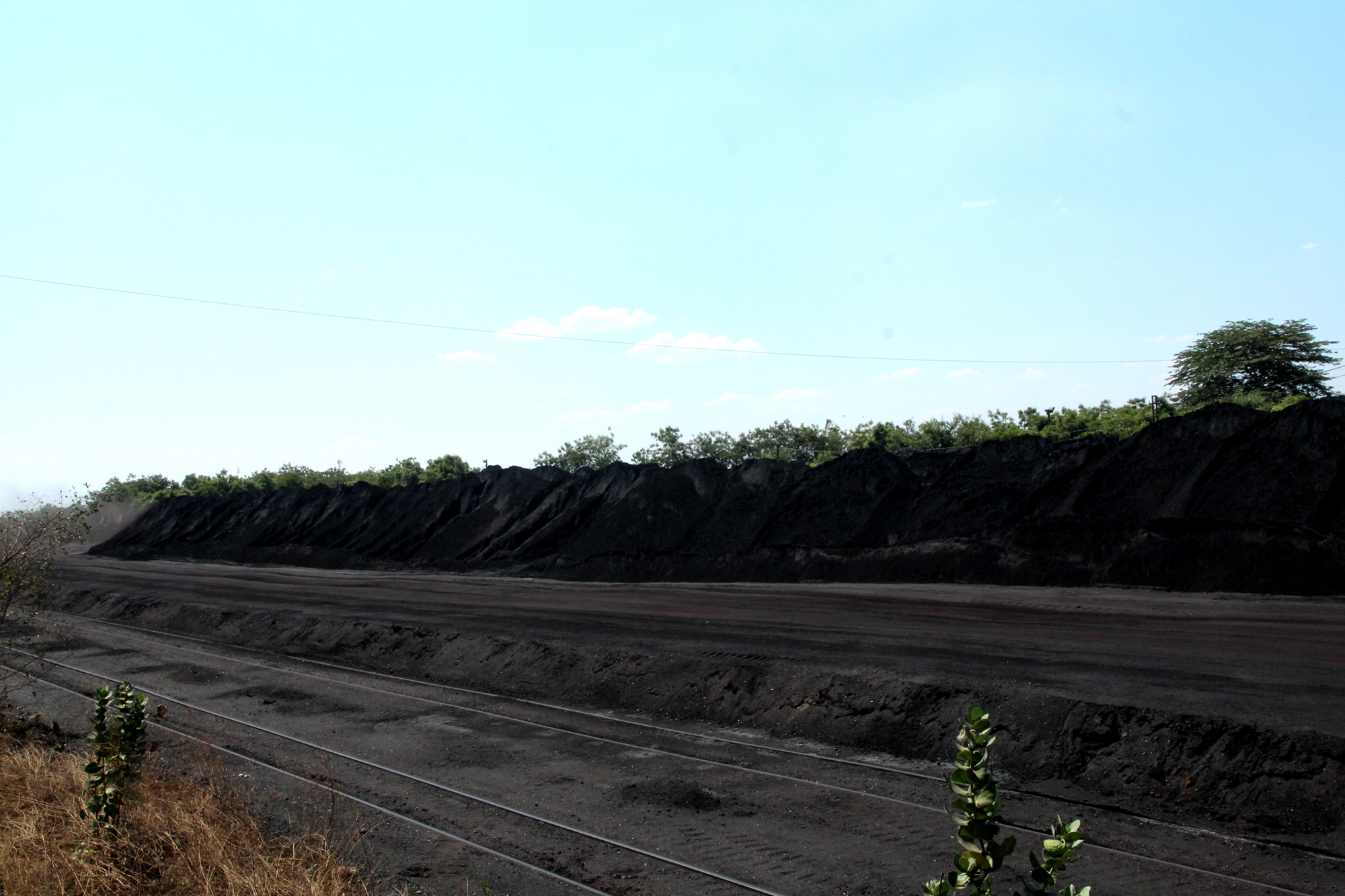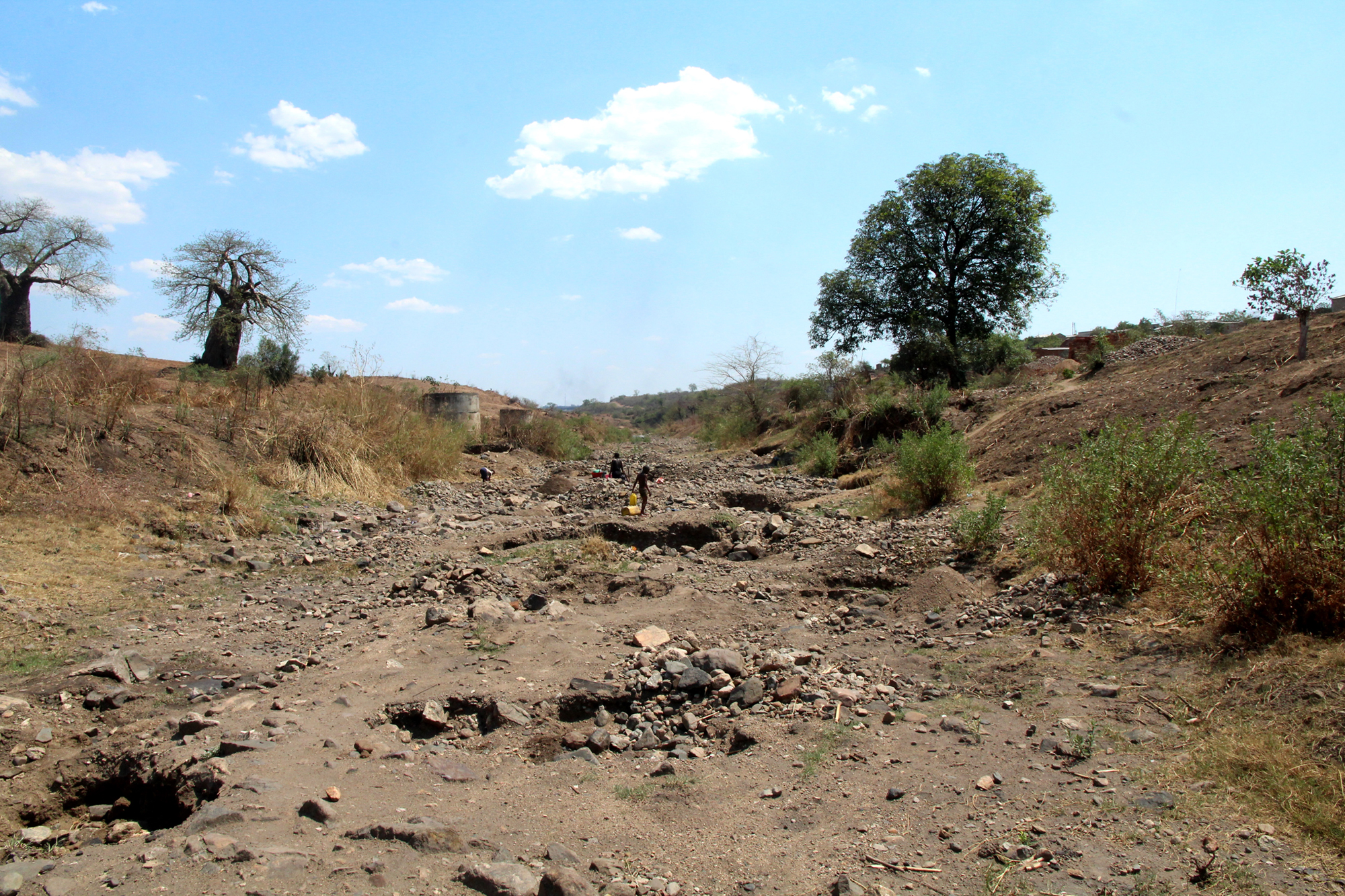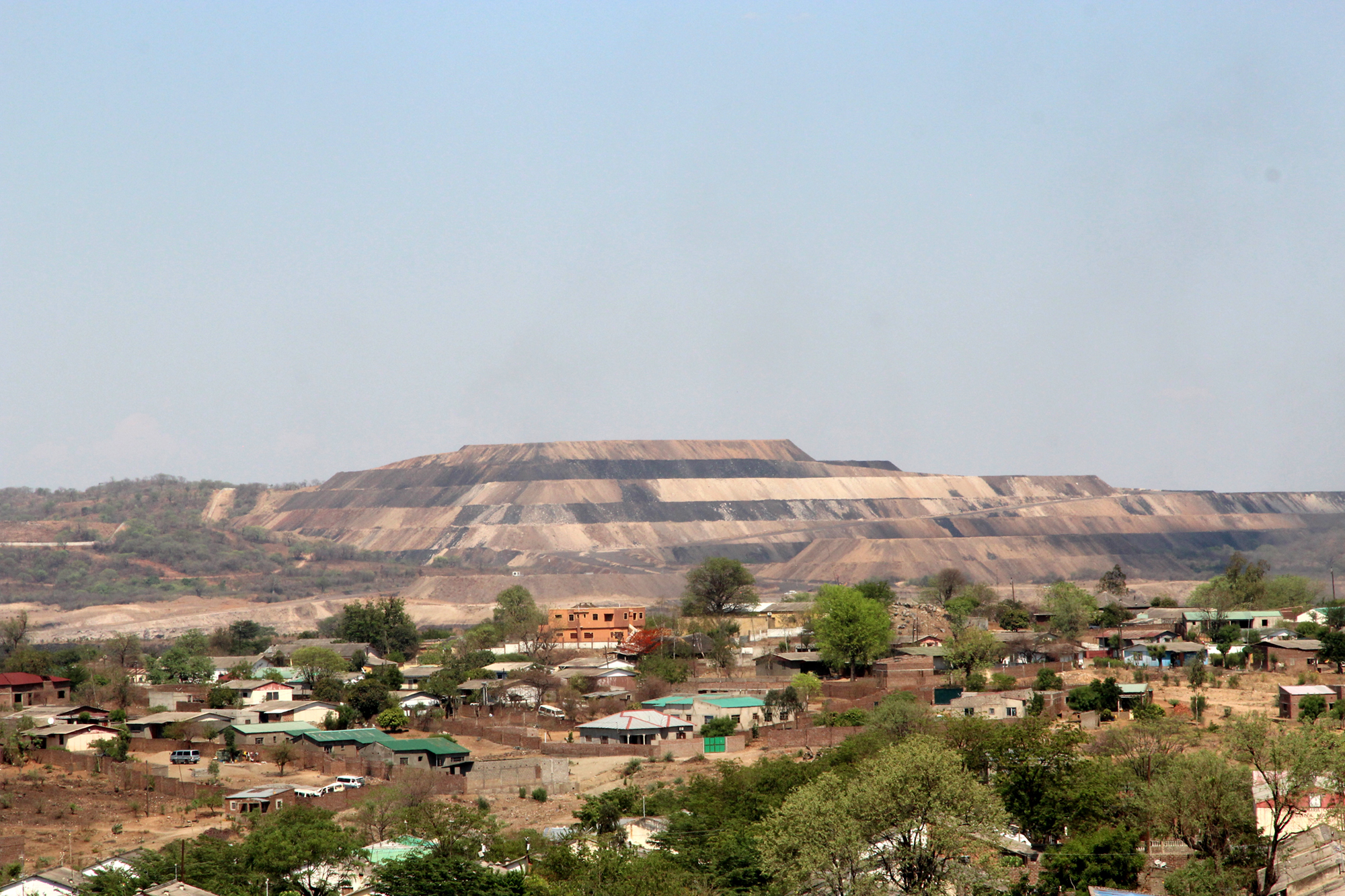A troubling pattern of land-grabbing, violence, pollution and death in Mozambique’s Tete province contradicts a Brazilian coal mine’s claims of ‘responsibly sourced’ coal. It also shows, once again, that Mozambique’s government authorities and security forces are squarely on the side of those responsible for the damage.
Six years ago, the plunder of rubies in Mozambique’s Cabo Delgado province made – mainly thanks to ZAM network colleague Estacio Valoi’s work – headlines around the world. Most shocking was the fact that Mozambique’s ruling Frelimo party government seemed to be fully on the side of the mining interests, in which prominent Frelimo individuals shared as shareholders and directors. It never intervened to protect locals who were, -partly by the Mozambican police’s own Rapid Response Unit-, violently removed from their land and sources of income.
Sadly, there has been no change in the ruling elite’s attitude when it comes to the exploitation of the country’s abundant resources to the detriment of its citizens. Estacio Valoi recently documented more such plunder, including of fish and seafood, wood, and other natural resources.
The Moatize coal mine
Fifteen years ago, in 2007, the Mozambican government signed a mining contract with Brazilian coal mining company VALE in a partnership with Mitsui Corp. The Moatize coal mine in Tete province was officially inaugurated in May 2011 and now produces 11.3 million tonnes of coal per annum. In January 2021, VALE announced plans to pull out of the project and, in December 2021, entered into a binding agreement with Vulcan, part of India’s Jindal Group, to sell the Moatize coal mine as well as its projects in the Nacala Logistics Corridor (for which a community of two thousand families were resettled). However, this transaction can only take place if the Mozambican government approves it. Whether it would do so was not clear at the time of publication of this article.

Black tap water
A new investigation by Valoi in partnership with the environmental NGO Justiça Ambiental has found that in the past decade over thirteen hundred families were removed from their homes in Tete province to make way for a coal mine for Brazilian mining company VALE. Most of these families had relied on subsistence agriculture, cattle raising and brickmaking from clay found at the river banks. They were removed to resettlement areas with allocated houses plagued by faulty infrastructure as well as poorly installed electrical and sewage systems. With the almost daily explosions in the mines, more than a thousand houses in the neighbourhoods of Primeiro de Maio, Nhantchere, Liberdade, Bagamoyo and Porto Seco now have cracked walls, and many have already collapsed.
Even worse, the land in the resettlement areas is of bad soil quality, far from markets and without access to water. The rivers that once provided the communities with water for farming, cattle and other basic needs, were diverted to supply water to the mine, polluted or simply buried by tons of sand. In Moatize, today, thick black clouds blanket the skies every time dynamite is blasted in the mine, the surfaces are always covered with black dust, and maize flour can no longer be left to dry in the open air. There is a great lack of water, and what does come out of the tap is black like coal.
The cattle, left without pasture, survive on garbage dumps scattered throughout the city of Moatize. Walking through the city, you may think that dogs are unusually large in the area, with leashes and all. But no, it's cattle turned stray.
When people cough, black stuff comes out
The total number of citizens in Tete province affected by the pollution is estimated at roughly half a million. Among them are many who complain of coughing and general ill health. ‘Here, when people cough, black stuff comes out and the doctors say it's mine dust,’ a community member tells us, adding that ‘Once, VALE, the government and a team from the hospital came to test people for a week. They saw that they had a cough, and that they were spitting out black things. But the company never returned to report back.’
According to a hospital official who requested anonymity most of the patients treated at the Moatize Hospital are diagnosed with tuberculosis. ‘Every day, here at the hospital, we receive a greater number of people with tuberculosis. We think it is due to the pollution. This (VALE) company is hurting us, even I am feeling sick’, said the official, continuing that the hospital ‘also saw many people who had been drinking dirty water from the river.’
According to laboratory analyses carried out on water in 2021 at Justiça Ambiental’s request, water and air pollution are three times above the national and international limits established by law. Cadmium levels of 0.009 mg/l were recorded in Vale's concession area, while the levels considered admissible by Mozambique and the World Health Organization are 0.003 mg/l. Cadmium is a heavy metal that causes damage to the nervous system and can cause disturbances in fetal development, even in low concentrations.
Seventy-eight US dollars
Besides the pollution, the area has become generally unsafe, especially to children. In September 2014, Ester Eduardo Pinto (14), from Primeiro de Maio, was buried alive by a dump truck while playing in a hole in the sand. In the same month a group of children drowned when trying to bath in a hole abandoned by VALE. Six years later, in November 2020, in Cateme, a child died and four others were seriously injured when they stumbled upon an old war mine while playing inside the resettlement built by VALE.
In the case of Ester, VALE paid the family 5,000 meticais ‘to help with funeral expenses’, an amount equal to seventy-eight US dollars. In none of the cases did VALE or the government accept any responsibility.
‘He had stress, grief and a heart attack after losing his land’
Moatize’s peasant farmers and brickmakers have been trying to get compensation for their loss of livelihood. VALE has compensated some of those who were forced to hand over their land to the mining company, but many others claim they were left out of the agreements. Cases regarding compensations, and equally promised new land allocations and social projects, date back to 2008, 2010 and 2012, with very little, if any, progress.
Zita, a forty-something year old widow in Paiol, told us how she and her now deceased husband Refo Agostinho were gradually forced to give their land away to VALE. For her and Refo, brick making had been a hugely succesful enterprise. It had fed their four children, paid for their school and covered other needs. The demand was such that they eventually employed fifteen workers and also built a house and bought a car. Then Refo expanded into milling, welding and panel beating, while Zita tended to her farm in nearby Canchoeiro. ‘For 20 years we developed this activity,’ says Zita. ‘Then VALE took everything from us.’
The couple were officially entitled to compensation for the brickmaking, milling and farming land that was taken by the mine. But VALE kept them tied up in delays. ‘They would say process X had to go through to position Y, but they always refused to give us money, continuously talking but without a solution,’ says Zita. Others experienced similar treatment. ‘So we organised protests to demand the compensation. But the police arrived, intimidated (us) and took (Refo) to jail.’ In the end, the Agostinho family received about 60,000 Meticais (approximately US$ 940); not even worth a few months of the income that Zita and Refo Agostinho had had before.
Zita is convinced that Refo died because of what happened. ‘He suffered stress and grief after that. He had stomach aches and blood pressure problems, and eventually died of a heart attack. Now, I support the children alone. I depend on a single mill, which he left to us.’

Neverending promises
Likewise, Paulo Vítor Maferrano (41) from Chipanga in Moatize, made around 30,000 Meticais (approximately US$ 470) per month from farming and brickmaking. ‘The mining company started occupying Chipanga in 2008, which they initially said they would not do. People who were removed from other areas had already come to Chipanga to make their machambas (small plot farms). But then suddenly, VALE started moving us out of Chipanga too.’
Left without his machamba and his brickworks, Maferrano and his colleagues and neighbours lodged compensation forms. ‘We went to both the government and VALE. First they said they were going to give us 60,000 Meticais (approximately US$ 940) to leave our fields and stop our activities, and then they would give us 125,000 Meticais (approximately US$ 1960) in compensation. That was in 2008. 2021 is about to end and people have not been compensated yet.’
Representative Nordino Timba Chaúque of the Nhankweva brickmakers commission, a group of close to 600 brickmakers, says he is fed up with VALE’s ‘neverending promises and unfulfilled agreements’ with the local communities over the years. ‘About five hundred or so people, from a total of around three thousand brickmakers, received 60,000 Meticais to stop their activities. But that was not the compensation. VALE still had to pay 125,000 Meticais to each of us. We never received that. They kept telling us to come back.’
Recently, however, VALE suddenly stated it will no longer pay any compensation to brickmakers at all. ‘It announced that it no longer recognised us and that we are not part of the registration lists,’ says Chaúque. ‘They said that the lists had been ‘tampered with’ by ‘infiltrated people’ from the community. But there were government staff and technical staff from the municipality involved with the lists, together with VALE. How could ‘people’ have infiltrated?’
A former employee of the company -called MP- that was contracted by VALE to draw up the compensation lists, confirms. ‘There are five thousand people on the lists,’ says the employee, who asks to remain anonymous. ‘But VALE started accused us of putting extra people on the lists in exchange for money, which is not true. We were even expelled. They confiscated our private phones and searched them.’
In the meantime, the situation has worsened. In 2019, VALE started the expansion of the Moatize III Mine, an extension that cut the neighbourhoods of Primeiro de Maio, Liberdade and Paiol off from the Moatize River. Meetings between the mine, the government and affected communities have not resulted in any compensation so far either.
Gun shots and tear gas
Protests from the communities have mostly been met with violence and intimidation. On the 6th of May 2021 a group of brickmakers and peasants occupied a section of the mine, blocking its access road, to demand answers from the company. The protest ended peacefully when brickmakers agreed with representatives of VALE and a government delegation that the matter would be debated the following day with the entire community in the neighbourhood square. However, the VALE and government delegations never showed up at the time of the meeting in Primeiro de Maio’s square. Instead, the police came.
The government is aware of what happened to me.
‘Suddenly, we realised that the UIR -the police’s Rapid Response Unit- and the people were running from one place to another,’ narrates Vasco, a local, who was at home at the time. ‘There were gunshots. They threw tear gas. I decided to pick up my 6 year- old son from school immediately. When I got back home, we got inside the house and I shut the door. But everytime they have a meeting here (at the community square), they come to borrow my chairs. So, amidst the havoc, a neighbour came to return the chairs. He knocked on the door, I peeked out the window and only saw him. I didn't know he was accompanied by a UIR agent. I opened the door and the agent shot me in the stomach. No questions asked. Nothing. He just said ‘these are the agitators’ and fired the gun at me.’
Thanks to his small son, who called his mother from his father’s cell phone, Vasco received transport and hospital care. ‘If it hadn't been quick, I don't know what would have happened.’ According to Vasco, the doctor told him that black particles found inside his body during the operation could have been dust from the mining company. ‘He said that this could be the dust we inhale every day.’
Since he was shot, Vasco’s health is not the same. He can't do tasks like weeding or carrying water, and at work as a truck driver for a security company contracted to VALE, his wound pains him. ‘When I put on the seat belt, it goes through my belly here, and I still have stitches.’ In conclusion, Vasco says he would ‘like to point out that the government was aware of what happened to me, and nobody came here to even see how I was doing.’
On the 20th of November 2021, four representatives of families whose homes have cracks were detained when they tried to complain to the mine. They remained in prison for three days. Shortly afterwards, on December 23rd, two brickmakers were equally detained, this time for five days, after a community meeting where VALE's refusal to pay compensation was discussed.
Journalists were told to ‘only talk with VALE directors’
Meanwhile, according to three interviewed local journalists who asked to remain anonymous, their media have been instructed by local authorities to ignore the injustices around the VALE mine. ‘The (state) radio directors told us to to only ‘talk with VALE directors, not with the locals nor with the oleiros (brickmakers),’ the three said. Moatize’s Mayor, Carlos Portimão, who has a history of attacking and threatening journalists, is widely suspected to be behind such instructions.

Court verdicts ignored
In the past two years several attempts have been made to obtain documents from VALE. But even though the company regularly proclaims a pro-transparency trance, and has promised such transparency also in community meetings in Moatize, none of the requested information has been forthcoming. When, last year, civil society organisation Justiça Ambiental went to court to obtain access to VALE's environmental monitoring reports from 2013 to 2020, it obtained a favourable court judgement. But the mining company, arguing that the reports ‘are of a confidential nature’, is still withholding them and has appealed.
A year before that, in 2020, the Mozambican Bar Association (OAM) had already successfully asked the courts to subpoena VALE to make available ‘various information of public interest,’ including the Memorandums of Understanding and other agreements signed between the Government, VALE Moçambique and the affected communities.The OAM had also requested information regarding ongoing resettlement processes and the total amount of taxes paid by VALE to the Mozambican state. But even though the Administrative Court of the City of Maputo mandated VALE to provide the information and also dismissed the company’s subsequent appeal, VALE is yet to provide the documents.
The schism between promises and actions is also present at VALE’s mother company, VALE S.A. in Brazil. According to communications received by Justiça Ambiental, several of those present at a shareholders meeting held in Rio de Janeiro in April last year voted not to approve the management report which omitted important information about the projects in Mozambique. These shareholders also requested numerous documents of public interest, including the ones requested by Justiça Ambiental and the OAM. Senior executives of the company then pledged to send the requested documents from headquarters, but none have been forthcoming from there either.
VALE did not respond to requests for comment sent during the preparation of this article. Neither did the Mozambican police, nor the Mozambican Ministry of Mining and Natural Resources.
*This investigation was produced with support from the Information for Development Trust and conducted in partnership with Mozambican NGO Justiça Ambiental.


